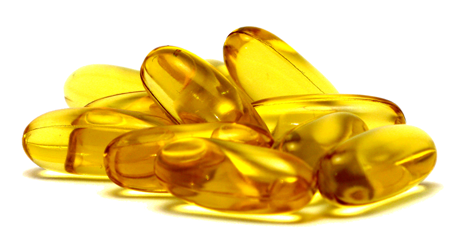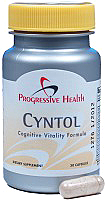Improving Short Term Memory Loss
There are several supplements that you can take to help improve your short-term memory: vitamins A, C, E, and B complex, trace minerals like zinc, calcium, selenium, and magnesium, omega-3 fatty acids, probiotics, and more.
Short-term memory loss can be a symptom of many things including disease, psychological problems including depression, injury, infection, a side effect of medication, or chronic drug and alcohol abuse.
While aging may include short-term memory loss, it is not usually a cause of the condition itself and is considered normal.
Short-term memory, as the name suggests, is held for a short period of time, usually a maximum of twenty seconds. It is then either discarded or stored in long-term memory for retrieval at a later time.
Often, when people first recognize memory loss, it is their short-term memory that has begun to decline.
There are several supplements that you can take to help improve your short-term memory:
- A multivitamin daily, containing the antioxidant vitamins A, C, E, the B-complex vitamins, and trace minerals such as magnesium, calcium, zinc, and selenium.
 Omega-3 fatty acids, such as fish oil, 1 - 2 capsules or 1 - 3 tablespoonfuls oil, one to three times daily, to help decrease inflammation and help with immunity. Cold-water fish, such as salmon or halibut, are good sources but not substitutes for supplementation. Omega-3 fatty acids, such as fish oil, 1 - 2 capsules or 1 - 3 tablespoonfuls oil, one to three times daily, to help decrease inflammation and help with immunity. Cold-water fish, such as salmon or halibut, are good sources but not substitutes for supplementation.
- Vitamin C, 500 - 1,000 mg one to three times daily, as an antioxidant and immune support.
- Coenzyme Q10, 100 - 200 mg at bedtime, for antioxidant, immune, and muscular support.
- Acetyl-L-carnitine, 500 mg daily, for antioxidant and muscle protective activity.
- Probiotic supplement (containing Lactobacillus acidophilus and other species), 5 - 10 billion CFUs (colony forming units) a day, for maintenance of gastrointestinal and immune health. You should refrigerate your probiotic supplements for the best results.
- L-glutamine, 500 - 1,000 mg three times daily, for support of gastrointestinal health and immunity.
- L-arginine, 1 -2 gm three times daily, for blood vessel support.
- SAMe (s-adenosyl-L-methionine), 100 - 200 mg before breakfast daily, for mood improvement.
- L-theanine, 200 mg one to three times daily, for the nervous system and brain support.
- Melatonin, 2 - 5 mg one hour before bedtime, for sleep and immune protection. Ask your health care provider about potential drug interactions with the use of melatonin.

Cyntol - Helpful for Cognitive Function
Cyntol has been designed for persons wishing to restore critical brain function, including those processes involved in memory and confusion. With its comprehensive list of ingredients, Cyntol may also work to eliminate risk factors that can interfere with cognitive functioning.
Supplementing your diet and active lifestyle with Cyntol may prevent excessive free radical damage upon the brain from occurring; thereby supporting your cognitive health, functioning, and vitality.
Progressive Health's Cyntol has been developed to lend support to our ever-increasing need for brain-supporting nutrients. Cyntol's unique blends of nutrients have been scientifically studied, and research supports their functional benefits.
Cyntol provides you with the means to become proactive in your anti-aging lifestyle; positively impacting brain health and potentially limiting the occurrence of cognitive disorders.
The ingredients in Cyntol include:
- Iodine: Studies indicate that children with iodine deficiencies are struggling in school whereas children with normal iodine levels are performing better in spelling and reading.
- Zinc: Zinc is a trace metal that is prevalent in the brain. Deficiencies of this nutrient may result in decreased neurological functioning and activity, which, therefore, would interfere with cognitive function.
- Acetyl L-Carnitine HCI: Research suggests that acetylcholine may improve the functioning cells located in the brain, primarily within the mitochondria. It may also positively affect acetylcholine levels. Interestingly, Acetyl L-Carnitine has been shown to produce beneficial effects on clinical and central nervous system neurochemical measurements in potential Alzheimer's and diabetic patients.
- Methylcobalamin: A type of Vitamin B12 that may be helpful for nerve fibers and regenerating damaged neurons. It may also work to reduce homocysteine levels in the body; elevated levels of this amino acid have been associated with reductions in cognitive function.
- Phosphatidylserine: By supporting the structure of the brain, Phosphatidylserine may be able to improve memory, learning, mood, and concentration in those with decreased cognitive function.
- Choline: Choline helps make acetylcholine, which is the brain chemical that is involved with memory and thought processes.
- Gingko Biloba: Acts as a tonic to the circulatory system by increasing blood flow to the brain; which also brings more nutrition to the brain.
- Bacopa Ext.: Has been used since the 6th century A.D. by India as a medicine to improve cognitive function and help with the nervous system. Has been reported to be effective for enhancing memory, improving brain function, and also improving mental performance.
- Korean Ginseng Ext.: The main ingredients in Ginseng are ginsenosides, which are thought to work in the brain to help increase the release of the hormone ACTH. This is thought to help to regulate and ease stress. It has also been reported to help with learning disabilities and improve mental stamina.
- Vinpocetine: Has been reported to improve cerebral blood flow and oxygenation, improves the production of ATP (energy) in brain cells, and slows down clot formation.
- Huperzine A Ext.: Huperzine A is beneficial for memory and learning, and has great potential for promoting alertness and overall cognitive function.
- Lecithin: Research suggests that lecithin may improve symptoms of Alzheimer's and other cognitive disorders.
To learn more about Cyntol, click here.
If you feel you may be having some short-term memory loss there are some steps you can take to help deal with it:
- First consult your doctor, if memory loss is chronic or interferes with everyday life your doctor can help identify the cause and rule out serious conditions such as Alzheimer's disease or brain trauma.
- Understand that short-term memories are stimuli stored in the brain for only a few minutes with little processing. It is possible to bring long-term memories up and to be included with short-term memories for a short time like when you recall a phone number.
- The short-term memory system is naturally limited to the number of items that it can hold which is usually between 7 and 15 items depending on the person.
- Repeat things you want to retain in your mind. Repetition can help keep things in your short-term memory.
- Get at least 8 hours of sleep a night, a full night's rest can help short-term memory.
- If you are trying to remember a word, use it in a sentence or if it is a person's name, call them by name during the first meeting.
- Saying out loud what you are trying to remember involves another sense and adds to your chance of remembering the thought.
|






 Omega-3 fatty acids, such as
Omega-3 fatty acids, such as 